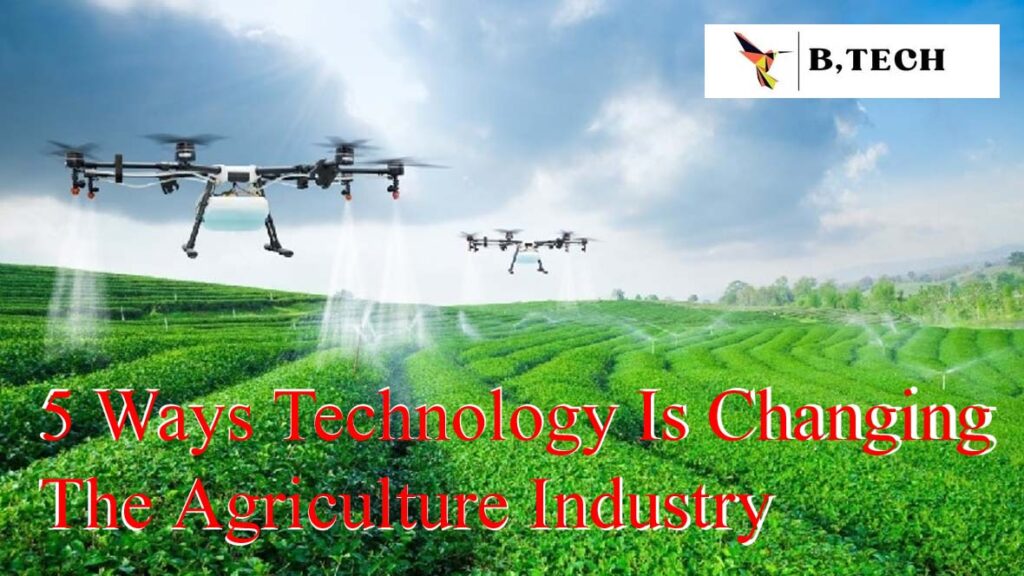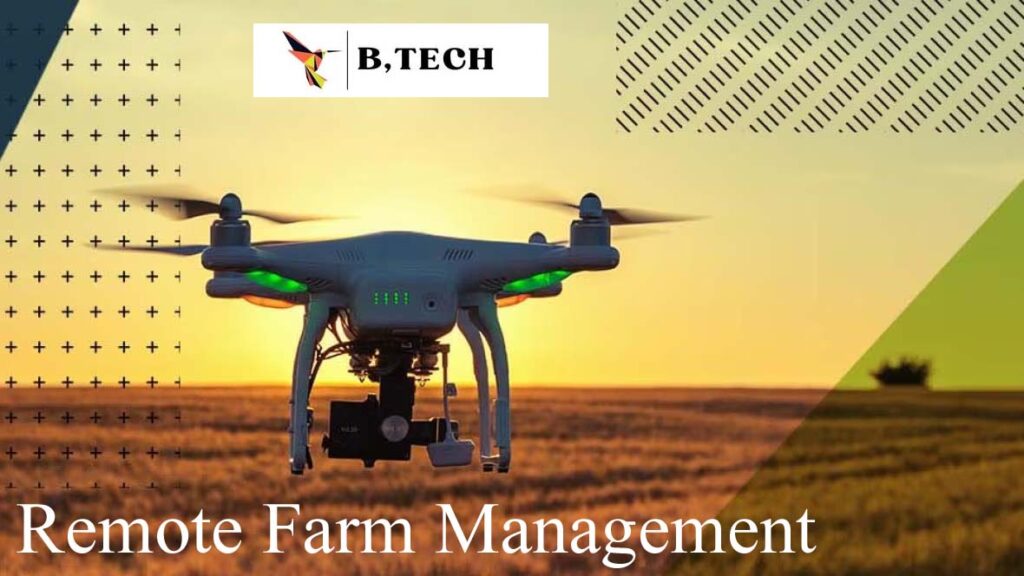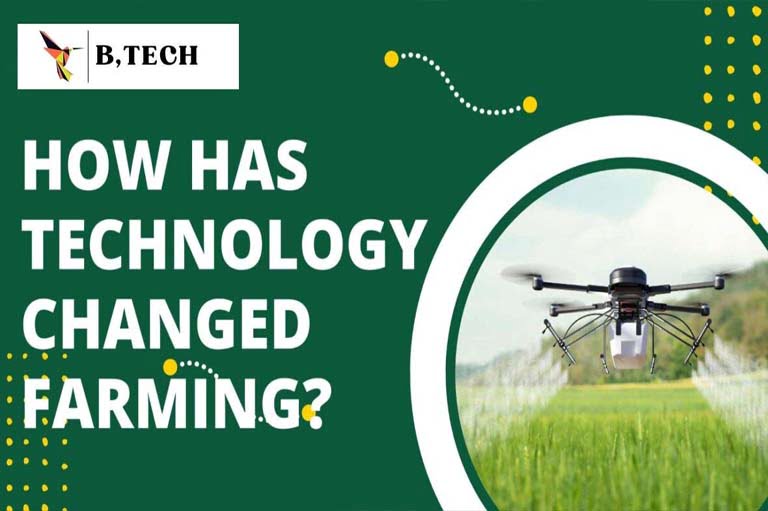5 Ways Technology Is Changing The Agriculture Industry is one that has seen massive changes in the past few decades. Farmers now have access to data and technology like never before, which has made it easier to grow crops, monitor livestock, and even sell products directly to consumers. At the same time, the number of farmers continues to decline in the U.S. as a result of people moving into urban areas for work and other factors.
The agriculture industry is certainly one that is going through some major transformations right now, but it’s not done changing just yet. In fact, the tech will continue to reshape how we grow food and raise animals for years to come. Here are five ways technology is changing the agriculture industry:
5 Ways Technology Is Changing The Agriculture Industry Climate Monitoring
Agriculture Industry Farmers today are able to monitor weather patterns like never before. Farmers with satellites orbiting Earth can now rely on 24/7 monitoring of weather forecasts, and some of these satellites are able to provide regional climate data. Farmers can now receive severe weather alerts and have better information about drought and floods, which helps them plan for the future. The Internet of Things also plays a role in climate data for farmers. Sensors can be placed on crops to help farmer monitor the amount of water they receive and light exposure, making it easier to grow crops in certain areas.

GPS-Based Farming
GPS-based farming has become increasingly common in agriculture technology in recent years, and technology such as autonomous farm vehicles will only continue to grow. These vehicles are able to navigate fields using GPS, allowing them to spray crops with just the right amount of fertilizers and water. Farmers are even able to control these vehicles remotely, allowing them to spend more time on other duties or managing other areas of their farm. Technology like autonomous vehicles and drones also allows farmers to plant seeds in a more precise manner, which helps them reduce costs and increase their yield.
Talking Animals
While we’re all familiar with talking to plants to help them grow, it turns out that animals like cows are also capable of responding to human speech. Ways Technology Is Changing The Agriculture IndustryCertain wearable devices have been developed that allow farmers to better communicate with their livestock. This can help with everything from giving animals proper instructions to monitoring their health. One device in development even works to help cows produce more milk by sending them different vibrations. Wearable devices like these can make managing livestock easier and provide farmers with better data about their animals.
Remote Farm Management
Farmers can now remotely manage everything from growing crops to managing livestock using technology. This includes monitoring crop sensors, hydroponic systems, and livestock tracking. Monitoring devices can help farmers keep track of feed, pesticides, water flow, and other factors that can affect their crops or animals. This not only helps farmers better manage their crops and livestock remotely but also allows them to spend less money on utilities as well. It’s also important to note that many of these technologies are beginning to work together in order to provide a more comprehensive solution.

Food Safety And Traceability
Improved technology has made it easier to track and trace food from the farm to the table. This is important when it comes to food safety, and it can also help ensure that the food you buy is grown and handled properly. This can help farmers reduce the amount of food waste that occurs during harvest, transportation, and storage. RFID tags and scanners are used on produce and livestock to help track the product back to the farm, and many farmers are now using blockchain technology to keep track of food.
Pros:
- Increased productivity: Technology in agriculture enhances efficiency and output through automation, precision farming, and advanced machinery.
- Improved sustainability: Technological advancements enable better resource management, reduced waste, and environmentally friendly practices.
- Enhanced crop quality: Technology aids in monitoring and optimizing crop health, resulting in higher-quality produce and reduced use of pesticides.
- Data-driven decision making: Agriculture technology provides real-time data on weather, soil conditions, and crop performance, enabling informed decision making for better yields.
- Access to global markets: Technology facilitates global connectivity, allowing farmers to access markets, share knowledge, and expand their reach beyond local boundaries.
Cons:
- Cost and accessibility: Some agricultural technologies can be expensive, limiting access for small-scale farmers or those in developing regions.
- Skills and training: Adopting and effectively utilizing agricultural technology requires knowledge and training, which may pose challenges for some farmers.
- Data privacy and security: The collection and use of data in agriculture raise concerns about privacy and potential vulnerabilities to cyber threats.
- Dependency on technology: Overreliance on technology may increase vulnerability to system failures, power outages, or technical glitches that can disrupt farming operations.
- Potential job displacement: The automation and mechanization of agricultural tasks could lead to job losses or a shift in required skill sets, affecting rural employment.
FAQs About Technology Is Changing The Agriculture Industry:
Q1: How is technology transforming the agriculture industry?
Technology Is Changing The Agriculture Industry is revolutionizing agriculture by automating processes, improving efficiency, enabling data-driven decision-making, and promoting sustainable practices.
Q2: What are some examples of agricultural technology?
Examples of agricultural technology include precision farming tools (such as GPS and drones), smart sensors, automated irrigation systems, robotic farming equipment, and genetic engineering techniques.
Q3: How does technology contribute to sustainable agriculture?
Technology promotes sustainable agriculture by optimizing resource usage, reducing waste, improving crop yields, minimizing chemical inputs, and implementing environmentally friendly practices like precision irrigation and integrated pest management.
Q4: What are the benefits of adopting agricultural technology?
Adopting agricultural technology can lead to increased productivity, improved crop quality, better resource management, enhanced profitability, and expanded access to global markets for farmers.
Q5: Are there any drawbacks or challenges associated with agricultural technology?
Some challenges include the cost and accessibility of technology, the need for skills and training, concerns about data privacy and security, potential dependency on technology, and the possibility of job displacement in certain agricultural sectors.
Conclusion of Technology Is Changing The Agriculture Industry:
The agriculture industry is certainly one that has been transformed by technology in the past decade. Farmers are now able to remotely manage their crops and livestock, and consumers have better transparency when it comes to their food. Technology is also helping farmers reduce waste and produce more food, which is important as the global population continues to grow. While technology has certainly changed the agriculture industry, it’s clear that it’s not done changing just yet
You May Also Like To Visit:- Best Tattoo Supply Store Near Me





Add comment